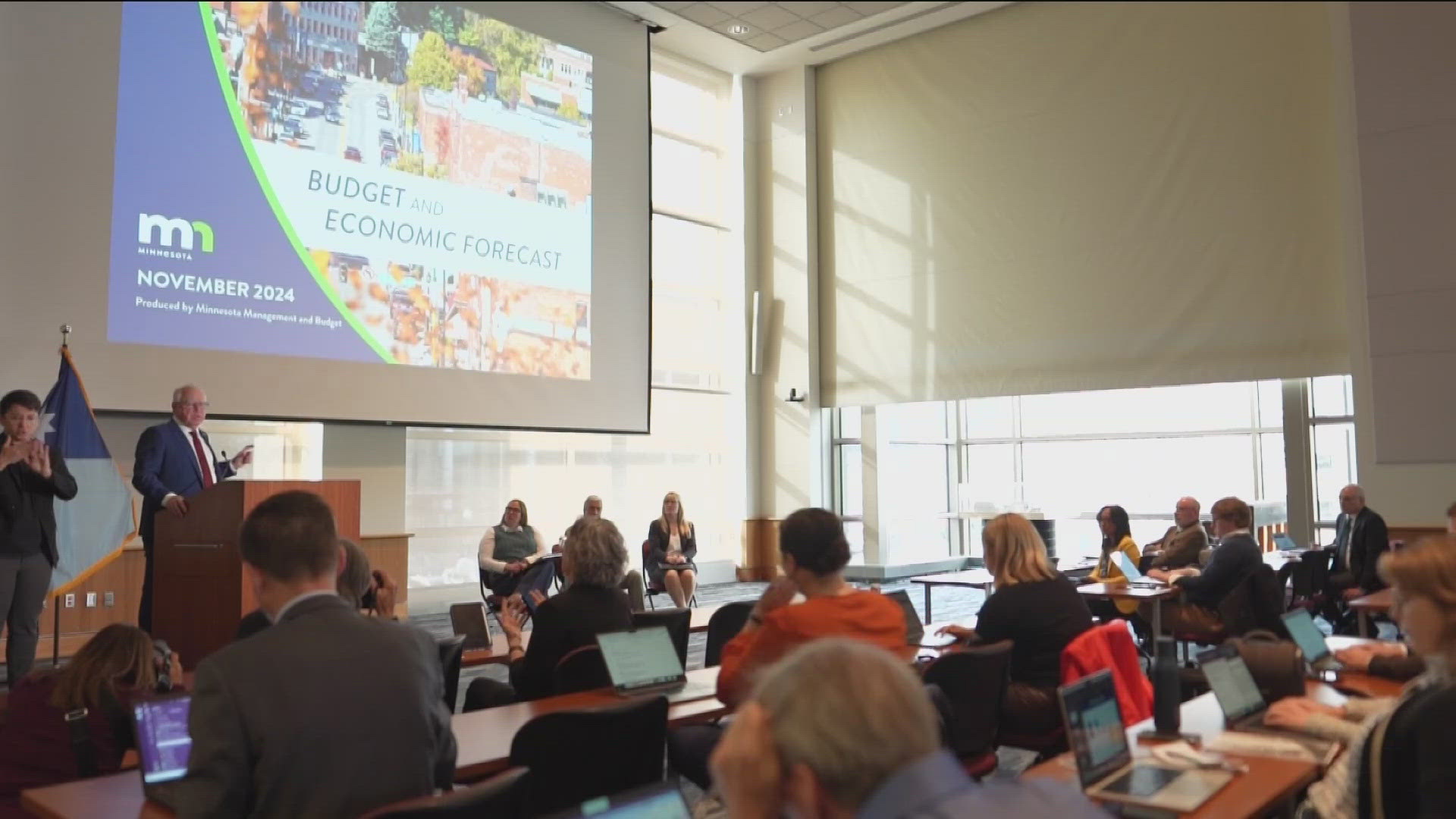ST PAUL, Minn — State budget officials on Wednesday forecasted a surplus of $616 million for the next two-year budget cycle, around $1.1 billion less than prior estimates, according to the Minnesota Department of Management and Budget.
They added that the state could face a multi-billion dollar shortfall in the following budget cycles.
"Projected reductions in income and sales tax revenues combined with higher spending for long-term care and special education result in a growing structural imbalance throughout the budget planning horizon," the website states.
During a news conference Wednesday morning, Minnesota Management and Budget Commissioner Erin Campbell said it's obvious this new surplus amount is a lot smaller than the $3.8 billion predicted in February and described how a big deficit could be looming in the future.
"Our financial picture is more constrained from the very beginning of (the 2028-2029 budget period.) During fiscal years 2028 and 2029 we expect spending to exceed revenues by 3.5 billion dollars," said Commissioner Campbell. She explained that with inflation added into the equation, the projected deficit would be $5.1 billion for the 2028-29 budget period.
Gov. Walz described that deficit as "pretty inescapable" and said "we'll take a look at everything" to fix the shortfall.
"This is a over-the-horizon budget issue of growing costs in an aging population, and more people accessing services, especially around autism," Walz said. "Very clearly, those things are going to have to be addressed. But this is not 'light your hair on fire,' that things are there. This is a stable, balanced budget."
Lawmakers will return to the capitol in mid-January to begin the next legislative session, which is an odd-numbered "budget year." Although they'll only vote on a final budget for 2026-27, the projected deficit in the following budget cycle will surely be part of the discussions.
The political dynamics will change at the state capitol next year after Republicans earned a share of power in the House through the last election, breaking the DFL's two-year run of full control of state government. (The two parties currently have a tie in the House, pending the outcome of a legal challenge to one seat). Therefore, they'll need to compromise in a bipartisan manner to pass a final budget document.
House GOP Speaker-Designate Lisa Demuth (R-Cold Spring) said they'll go through the state budget "line-by-line" to identify cuts and will demand that department heads provided detailed reports about their spending and hiring practices. Republican leaders say the DFL spent too much on their legislative priorities after entering having a $17 billion surplus in 2023.
"The results that we saw with the budget forecast that came out today, is exactly what House Republicans have been warning for the last two years would be the case," Demuth said, before later adding: "With a tied House right now, it gives us the perfect opportunity to come together, to work with our DFL colleagues to find solutions, to govern responsibly, to reign in the spending."
Rep. Melissa Hortman, the DFL's Speaker-Designate in the House, said her caucus will focus first on passing a 2026-27 budget before speculating about the projected deficit in 2028-29 cycle.
"This is a long time into the future, this is a look that we're getting, a light we're turning on, on a future period that most states don't look at," Hortman said. "It gives us time to prepare."
She said her party has acted responsibly by leaving a surplus in the current and next budget cycle, while also praising the $3.5 billion in budget reserve fund balance.
"We are in the best position possible, to weather whatever happens in the near-term or long-term," Hortman said.

